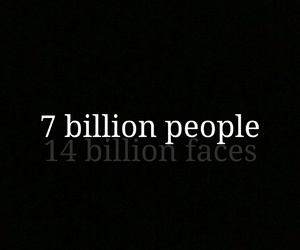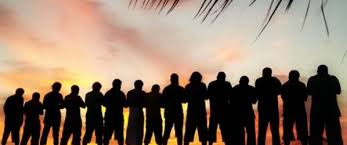





 “All of my Ummah will be forgiven except those who sin openly…” [1]
“All of my Ummah will be forgiven except those who sin openly…” [1]
Sinning privately is between Allah and His servant and a struggle that only He knows about and which In sha Allah He will give His servant the Tawfiq to repent for. Openly sinning with no remorse is tantamount to a public challenge to Allah and it doesn’t just remain between a servant and his Lord, but with the people too. One is to unashamedly disobey Allah and then to further justify the sin, but “Allah will not help a people until they help themselves.” [2]
Lately, I seem to have come across many sisters who give reasons for their Hijab – or lack thereof!
“I’m not ready for the Hijab yet!”
“So what if my hair is uncovered? My heart is clean!”
“Don’t tell me to wear Hijab, only Allah can judge me.”
Naturally, it led to many debates where not everyone agreed. Hence, this is merely an opinion.
At random, I started looking at other commandments of Allah. His order to fulfil the obligation of Salah comes with the condition that one has reached the age of puberty, is sane, and is a Muslim. Similarly, the donning of Hijab becomes compulsory once a woman reaches the age of puberty. But why are sisters so quick to make excuses like, “I’m not ready yet” and, “But my heart is clean,” when we don’t make the same excuses for our Zakah and fasting the month of Ramadhan?
My mind is at awe with the women around my Nabi ﷺ who dropped all they had in order to comply to another commandment of Allah with the hope of coming closer to Him. Fatimah Al-Zahrah (R), the queen of the women of Jannah, was the epitome of modesty at the time of Nabi ﷺ and continues to serve as an example until the end of time. Similarly, Umm Khallad (R) who upon hearing of the martyrdom of her beloved son on the battlefield, rushed to it whilst veiled. When asked how she managed to cover in such a state, she responded, “I have lost my son, but I have not lost my modesty.” [3]
Such women had the purest of hearts and yet they did not make the excuses we make because it is not befitting for a Muslim woman to ask for a concession in a matter that Allah and His Nabi (S) have ordained for us!
It may be true that a sister without the Hijab may have a heart purer and Taqwa stronger than that of a sister fully covered. However, when a Muslim woman CHOOSES not to wear the Hijab out of her own free-will (without a valid Shar’i reason), she becomes another fallen brick in the wall that divides us as an Ummah because she has chosen to hide her identity. Those who wear the Hijab (despite their struggles) are then labelled fanatics and extremists because another side has presented a “liberal” image which shows the world that it clearly isn’t mandatory to wear the Hijab and it can’t really be part of the faith! And so in this manner, she makes it harder for her “Hijabi” sister to practice her faith.
Those who refuse the Hijab claiming only Allah can judge them, remember that indeed Allah WILL judge them. Let’s help one another to become stronger in our faith and show the world that we are proud of our identity. May Allah help each of us in our struggles and only He knows what they are.
Do you agree? Disagree? All comments welcome, but please be courteous.
[1] Bukhari and Muslim
[2] Surah Ra’ad (13:11)
[3] Abu Dawud
Zainab Bint Husain (Allah protect her)
10 Muharram 1440
 “I’ve come to a frightening conclusion that I am the decisive element in the classroom.
“I’ve come to a frightening conclusion that I am the decisive element in the classroom.
 Ponder over the following examples where very few words unlocked the greatness of three great people.
Ponder over the following examples where very few words unlocked the greatness of three great people.


A man was born 69 years ago,
Brave, courageous, a fighter for the truth,
A man was born 69 years ago,
Who was no ordinary man, not a weak man but strong and valiant.
A man was born 69 years ago,
Who was kind, loving, warm and friendly,
A man was born 69 years ago,
Who had a heart of gold, but stayed firm and bold.
A man was born 69 years ago,
Who loved helping people, but never asked for help,
A man was born 69 years ago,
Who was thoughtful and caring, but fierce and daring.
A man was born 69 years ago,
He couldn’t see wrong in front of him, didn’t matter if it was his own kith and kin,
A man was born 69 years ago,
Selfless, sacrificing, noble and respected.
This man left us three years ago,
Silently, returned to his Lord SWT,
This man left us three years ago,
Our lips were silent, but our hearts spoke
This man left us three years ago,
Even if we tried to forget him, it’s difficult to hide the painful tears.
In Memory of Abba
Ismail Ibn Nazir Satia (One who is in dire need of Allah’s Forgiveness, Mercy and Pleasure).
27 Safar 1437
By Hadrat Mawlānā Muhammad Saleem Dhorat hafizahullāh
Besides the remembrance of Allāh ta‘ālā there is no other way for the heart to find peace, contentment or tranquillity. The patient suffering from eczema may attain a transient pleasure by scratching, but when he stops scratching, the discomfort returns and the future bodes nothing but difficulty. Likewise, temporary pleasure may be attained by one who disobeys Allāh ta‘ālā, but as soon as he concludes the impermissible activity he is involved in, his heart once again becomes discontent and restless.
No one in the world has a cure for restlessness of the heart. Allāh ta‘ālā has complete control over this condition and has kept its cure solely with Himself. If contentment of heart is lost, the combined efforts of all the world’s doctors, mashā’ikh and resources will be of no avail. Peace and contentment come from one place and one place only – they descend upon the hearts of man directly from the Court of Allāh ta‘ālā; no one else has been allowed power over them.
It is He who sent down peace upon the hearts of the believers… (48:4)
Allāh ta‘ālā is the one who causes peace, tranquillity and happiness to descend, and furthermore, they only descend upon hearts that are capable of accommodating them.
The Airport of the Heart
This concept can be understood by the following analogy. Aeroplanes of different designs do not indiscriminately land at any available airport. Airports are assessed to see what types of aircraft they are suitable for. If the airport is large, of sophisticated design and having a large runway of the best quality then the largest and most advanced aeroplanes will be able to land there. If the airport is not so well equipped then lighter aircraft will use it. If the airport is decrepit, with a runway full of potholes, then even the lightest aircraft will not be able to make use of it.
Our hearts are also airports, with a runway upon which the aeroplane of sakīnah (tranquillity) from Allāh ta‘ālā is designed to touch down. If the airport of our heart is small or if its runway is full of holes and cracks, then the aeroplane of sakīnah from Allāh ta‘ālā will not land. We will need to exert every effort to remove the cracks on the tarmac that have appeared due to our sins. We will need to refrain from sins to stop more cracks appearing. We will need to repent and submit to the commands of Allāh ta‘ālā, for it is with the tarmac of repentance and submission that the cracks of the runway are sealed.
Only after this effort will the aeroplane of tranquillity descend upon the heart. Then, for as long as an individual continues to maintain and rectify the airport of the heart, the aeroplane of sakīnah will continue to land. Its schedule will become fixed and its landings will be continuous.
Those who say: ‘Allāh is our Lord,’ and then remain steadfast, angels will descend upon them and say: ‘Do not fear nor grieve, and be happy with the good news of Jannah that you have been promised.’ (41:30)
At the time of death, Allāh ta‘ālā will send angels with sakīnah to the believers and as a result, they will not fear or grieve. Some mufassirīn state that those believers who strive throughout their lives to keep their hearts pure and clean and shun sin and repent if they slip are visited by angels bringing peace every day. Mufti Shafī‘rahimahullāh has quoted Abū Hayyān rahimahullāh as saying that angels descend upon the believers every day, the effects of which are manifested in their good deeds. The only difference is that until the moment of death, a believer is unable to see or hear the angels as they descend.
This is an extract from the booklet ‘Real Pleasure’ published by
the Islāmic Da’wah Academy.
• Please forward this message on to all your contacts •
Unsubscribe
Remove your address from our mailing list. Unsubscribe.
Praise be to Allah.

Mankind was one nation, believing in Tawheed, then they differed. Some of them believed and some disbelieved. So Allah sent the Prophets AS with glad tidings and warnings, so whoever believes will enter Paradise and whoever disbelieves will enter Hell. The conflict is still going on between belief and disbelief, truth and falsehood, and will continue until Allah inherits the earth and everyone on it.
Islam is the religion for all of mankind, and Allah has commanded us to convey it to all people. This can only be achieved if we are strong, and strength is based on faith and unity. Hence Allah has commanded all the believers to adhere to His religion and to be united, and not to be divided. Allah says (interpretation of the meaning):
“And hold fast, all of you together, to the Rope of Allah (i.e. this Qur’an), and be not divided among yourselves
[Aal ‘Imran 3:103]
Division, differences and disputes are the cause of the ummah’s defeat, as Allah says (interpretation of the meaning):
“And obey Allah and His Messenger, and do not dispute (with one another) lest you lose courage and your strength departs, and be patient. Surely, Allah is with those who are As-Saabiroon (the patient)”
[al-Anfaal 8:46]
Unity and coming together are among the basic principles of Islam, and there are many aspects of unity in Islam, such as One Lord, one Book, one Prophet, one religion, one qiblah, one ummah.
In order to achieve the unity of the ummah, Islam urges us to adhere to the jama’ah (the group which follows the Qur’an and Sunnah). The Messenger (peace and blessings of Allah be upon him) explained that the hand of Allah is with the jama’ah, and that whoever deviates from that will be in Hell. Allah has enjoined coming together for all acts of worship in order to achieve this unity. Allah addresses the Ummah as one group in all rulings to indicate that they are one ummah, like one body. There is no difference between them; the commands and prohibitions are addressed to all.
Dearest brothers and sisters of the Ummah of Muhammad (peace and blessing be upon him), when we look around the globe today we see the Ummah has become selfish. We don’t see anyone caring for the Ummah, looking out for others and showing empathy towards those who are needy and the suffering. We see an Ummah suffering form individualism, everyone cares about ‘his own’. His own family, his own house, his own children, his own job, his own life and his own future.
The Ummah is devoid of men and women who stand up for the Ummah, who cry for the Ummah. Or even brothers and sisters who PRAY for the Ummah – Allahul Musta’aan.
I absolutely loathe selfishness and self-centred, self-absorbed, self-conceited individuals. If everyone is going to just care for themselves, who will stand up for the oppressed? Who will speak up for those who have been wronged? Who will stop injustice? Who will free the innocent prisoners? Who will protect the orphans and the widows? Who will be there for the lonely ones and the elderly? If you and I refuse to help them and ignore their cries, then I swear by Allah on His Majestic throne – nobody will help them! Nobody! Simply because we were too bothered and busy about earning the next dollar! We were too engrossed in keeping ourselves in shape. Wealth made us negligent. Materialism deceived us in thinking the world is forever.
If the above is true, then may I ask, what difference is there between us and animals? Animals just eat and rest and sleep, so do we. So do those who disbelieve in Allah.
This story may only be an anecdote, but it reflects a very powerful lesson:
In a forest, there lived three bulls: a red bull, a black bull and a white bull. Among them lived a lion. The lion never felt he was king of the forest. He felt outnumbered by three bulls, which he was.
One day, the lion said to the red bull and the black bull: “That white bull is so large and white and can be spotted easily in through the trees of our forest. My colour is similar to yours. Let me eat the white bull, and the three of us will blend in well together. Then we will be safe in the forest.”
The red bull and the black bull said: “Go ahead, eat him.”
So the lion ate the white bull.
A few days later, the lion said to the red bull: “You and I look alike, your colour and mine are similar. What do you say I eat the black bull, and the forest will be ours.”
The red bull replied: “Go ahead, eat him.”
And so the lion ate the black bull.
A few days later the lion said to the red bull: “Today I think I will eat you.”
The red bull said: “Let me call my friends to rescue me!”
The lion replied: “Go ahead, call them.”
But the red bull cried out instead in dismay: “I know was eaten the day the white bull was eaten.”
Now reflect upon this Hadith:
Thawban – radiallahu ‘anhu – the freed slave of the Prophet sallallahu ‘alayhi wa sallam. He related that the Messenger of Allah said: “The nations are about to call each other and set upon you, just as diners set upon food.” It was said: “Will it be because of our small number that day?” He said: “Rather, on that day you will be many, but you will be like foam, like the foam on the river. And Allah will remove the fear of you from the hearts of your enemies and will throw wahn (weakness) into your hearts.” Someone said: “O Messenger of Allah! What is wahn?” He said: “Love of the world and the hatred for death.”
Sahih: Related by Abu Dawud (no. 4297), Ibn ‘Asakirin in Tarikh Dimashq(2/97/8) and others.
This hadith explains the first form of weakness, which has befallen the ‘Ummah in all corners of the world, as being a result of inclination to this world, love of it, and being preoccupied with it, whilst turning away from the Hereafter, being distant from it and hatred of death. Hatred of death is a sign of loving this world, since the one who loves this world, hates death. Since, with death, comes the meeting with Allah – the Most Perfect.
From the hadith, we can conclude the following:-
Indeed, fear is a weapon, which Allah implants in the hearts of His enemies. This is why the strength of the Muslims, is not in their great numbers – weapons or wealth – but it is in their ‘aqidah (belief) and they’re adhering to it. For today there are plenty of Muslims, but they are like foam, like the foam carried by the waves. And their riches are many but cannot be for them. Rather, it has become the possession of their enemies. For example, The Muslims today approximate over one billion and they grow in number every day. However, at the same time they are the weakest of nations in every country they are in, being persecuted – why?
Because they have become like foam, like the foam on the waves. Also, the lands of the Muslims possess many riches and minerals, but where does it all end up? With the disbelievers in Europe or America, or it goes to the Jews of Palestine. The Muslim oil constitutes approximately one-third of the world’s reserves, but the Muslims are the poorest of people – why?
Because they do not possess anything from their Din (religion), except a name. So they call to it, but all their riches now belong to their enemies.
O Lord of the Worlds, O Ever-living One, O Self-Existing One!
O Allah! Unite the Muslims.
O Allah! Save us from disunity.
O Allah! Make us brothers like the Ansaar RA and the Muhajireen RA.
O Allah! Protect us from Racism and Nationalism.
O Allah! Save us from differences.
O Allah! Help us to be One.
O Allah! Grant us sympathy and empathy for the Ummah.
O Allah! Save us from selfishness.
Ameen Ya Rabbal-Alameen.
Ismail Ibn Nazir Satia (One who is in dire need of Allah’s Forgiveness, Mercy and Pleasure).
1 Muharram 1437
Ya Rabb! Place the reward of this article in the scales of my Late Father RH, in his mizaan of Hasanaat. I believe he was a man who stood up for the Ummah, he wasn’t a selfish man. He believed in Unity and empathy. He taught me dignity and self respect. I learned from him not to ‘go with the flow’, rather be a force against the tide – no matter what the pressure, no matter what the odds are. And never fear the criticism of the critics. Most importantly, he taught me how to place all reliance on Allah. Because, if Allah can’t help you, nobody can! Two years after his demise, his legacy remains in sha Allah…